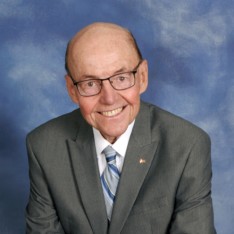Reciprocity in Occupational Licensure Might Be a Bad Idea

On April 10, 2019 Arizona Governor Doug Ducey signed into law HB 2569, a bill to create “guaranteed recognition” of occupational licenses in other states. This was hailed as a great victory by libertarians and classical liberals who have always argued that (at least most) state occupational licensure laws do nothing but create in-state cartels designed to protect existing practitioners from open market competition. However, the new law does not guarantee recognition of out-of-state licenses. Libertarians and classical liberals should be less enthusiastic and take a second look.
Given that occupational licensure exists, what sort of “reciprocity” could be acceptable to a free-market advocate? One that, at least, allows a person licensed to practice a profession in one state, and whose license is in good standing, and who has a clean record of successful practice, to practice the same profession in another state.
One might argue that, for example, a lawyer seeking reciprocity in Arizona ought to be required to acquire state-specific knowledge of Arizona law, but he or she would have to do that anyway to have a successful Arizona practice. No state coercion is necessary. Moreover, for most occupations state-specific knowledge is irrelevant.
The Arizona government is very clear that HB 2569 does not grant market-friendly reciprocity. At its official website the Arizona State Board of Technical Registration says:
The new law DOES NOT recognize other states’ occupational licenses automatically. For example, workers licensed in other states who move to Arizona still must apply for a license through the appropriate Arizona licensing board before working. However, under the new law, workers will not be required to duplicate training and other requirements that often needlessly delay or prevent them from getting to work.
And what may an “appropriate Arizona licensing board” require?
Individual boards may have several pathways to licensure already in statute (interstate compact, licensure by endorsement, reciprocity, etc.). There are various pathways to licensure. Universal recognition is not meant to be the replace (sic) these pathways (sic) licensure, but represents an important new pathway that broadens the options available.
In clearer language, Arizona reciprocity is limited to those cases where the state in which a professional is already licensed has exactly the same licensure requirements as Arizona. Indeed, “workers will not be required to duplicate training and other requirements “ they already have met; but that training and those other requirements must be identical to what is required of every new licensee in Arizona. A record of successful and unblemished practice in any other state is insufficient to acquire an occupational license in Arizona.
Consider this example with which I am familiar. The Arizona Board of Behavioral Health Examiners, which licenses Marriage and Family Therapists (MFTs), requires, among other things, an
[o]fficial transcript for masters or higher level degree in the applicable field of practice granted by a regionally accredited college or university for … LMFT … applicants.
Other states, such as Nevada, Utah and Maine, accept masters-degree-equivalent paths of MFT postgraduate training such as certification of MFT graduate studies which include the usual master’s level courses and practicum requirements. So licensed MFTs in such states, who are certified but don’t have a specific masters degree in MFT, and who have records of successful practice in their respective states are still barred from an Arizona MFT license.
We libertarians and classical liberals are rightfully delighted when any government, anywhere, eliminates barriers to competition. But, despite all the celebration, we must recognize that Arizona has not done so with respect to occupational licensure.











